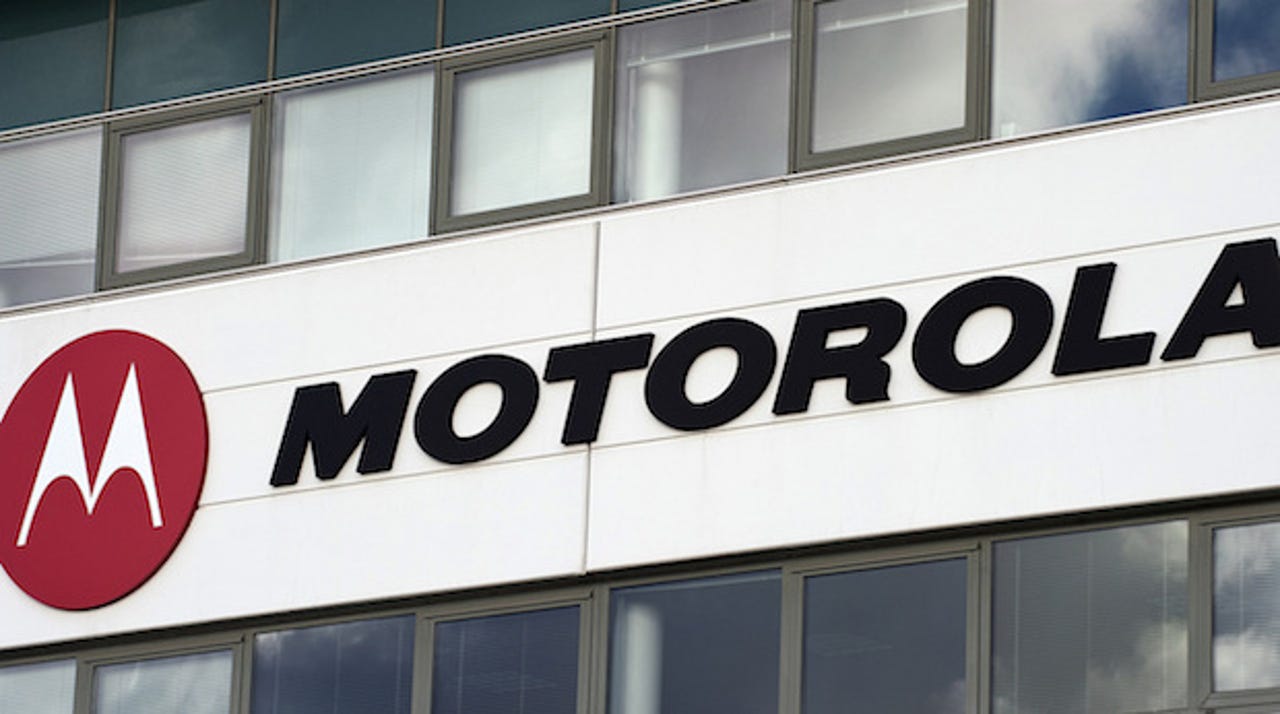Lenovo buys Google's handset business for $2.91B



Lenovo has quickly become a smartphone player by tackling emerging markets as well as China, while strategically leaving the U.S. untouched. That strategy is changing: Lenovo is buying Google's Motorola handset business.
Google confirmed after markets closed on Wednesday that Lenovo has acquired Motorola Mobility in a deal valued at $2.91 billion, just two years after the search giant bought it for $12.5 billion.
Read this
Lenovo will pay $1.41 billion when the deal closes in cash and shares, and the remainder will be in a $1.5 billion note over three years.
In a company blog post, Motorola confirmed that Google will retain the "vast majority" of the patents it acquired when it first bought the mobile company in 2011, including "current patent applications and invention disclosures." Lenovo will license the patents as part of an ongoing relationship with the search giant.
So, it turns out that Google's Motorola Mobility purchase was really about the patents after all.
Lenovo, which has been on an acquisition spree and recently bought IBM's x86 server business, just reorganized around mobility, enterprise, PC, and cloud services. Lenovo will beef up its mobile unit with the purchase of Google's Motorola Mobility, the unit behind the Moto X.
Indeed, Lenovo and Google said in a statement:
This agreement will significantly strengthen Lenovo's position in the smartphone market. In addition, Lenovo will gain a strong market presence in North America and Latin America, as well as a foothold in Western Europe, to complement its strong, fast-growing smartphone business in emerging markets around the world.
Google CEO Larry Page said in a blog post:
But the smartphone market is super competitive, and to thrive it helps to be all-in when it comes to making mobile devices. It’s why we believe that Motorola will be better served by Lenovo — which has a rapidly growing smartphone business and is the largest (and fastest-growing) PC manufacturer in the world.
This move will enable Google to devote our energy to driving innovation across the Android ecosystem, for the benefit of smartphone users everywhere. As a side note, this does not signal a larger shift for our other hardware efforts. The dynamics and maturity of the wearable and home markets, for example, are very different from that of the mobile industry.
Lenovo CEO Yang Yuanqing added:
We are confident that we can bring together the best of both companies to deliver products customers will love and a strong, growing business. Lenovo has a proven track record of successfully embracing and strengthening great brands – as we did with IBM's Think brand — and smoothly and efficiently integrating companies around the world. I am confident we will be successful with this process, and that our companies will not only maintain our current momentum in the market, but also build a strong foundation for the future.
On the follow-up conference call with members of the press, it was confirmed by Lenovo executives that Motorola chief executive Dennis Woodside and the executive team will be part of the transition to Lenovo.
"Motorola has a excellent engineering team. If we can combine that with efficient operations platform at Lenovo — we believe we can not only sell more volume of phones, but also make more money from this product line. We expect profitable growth in the future," Yuanqing said.
- Read more: Lenovo-Motorola deal: For Google, it's still all about the patents | Lenovo to buy IBM's x86 server business for $2.3bn |Lenovo reorgs biz after IBM server buy | Lenovo hones smartphone strategy, launches LTE Vibe Z | IDC report: Smartphone shipments pass 1 billion in a year for the first time in history | Moto G to battle Indian brands for mobile supremacy
He also said during the transition that there are no plans to lay off any of the global workforce. "We bought the company, and we bought the team," Yuanqing said, describing the Lenovo-Motorola team as "complementary."
All eyes will be on exactly what the mix of Lenovo and Motorola devices will be. Lenovo currently holds the second-place spot in China, and has significant inroads in emerging markets, notably India, Russia, and Indonesia. Lenovo will continue to use its brand in those markets, the company's boss confirmed, while using Motorola in the U.S. where the brand is stronger. In places like China, where there's a mix of both brands, Lenovo may market both.
Lenovo will also "assess the market requirements in the U.S. and Latin America" to see if it should use current devices or develop new ones.
Yuanqing said depending on which is best for the market conditions, "We can leverage the Motorola brand to do business in that area as well."
Featured
For Google, the sale of its handset business gets it out of a channel conflict over Android and partners such as Samsung. Google would also shed a money-losing handset business that hurts profit margins.
Overall, Google could generate a return on its $12.5 billion Motorola Mobility purchase even if Lenovo gets a good bargain.
Lenovo would get U.S. carrier relationships, intellectual property, and an entry into the U.S market. Lenovo has made headway in the tablet market as well as smartphones via Android. In fact, Lenovo has really been the only PC maker to navigate the post-PC era well.
The deal is expected to close this year — a specific date was not given — and will likely be subject to regulatory approval in both the U.S. and China.
From the U.S. Securities and Exchange Commission with further details on the deal: